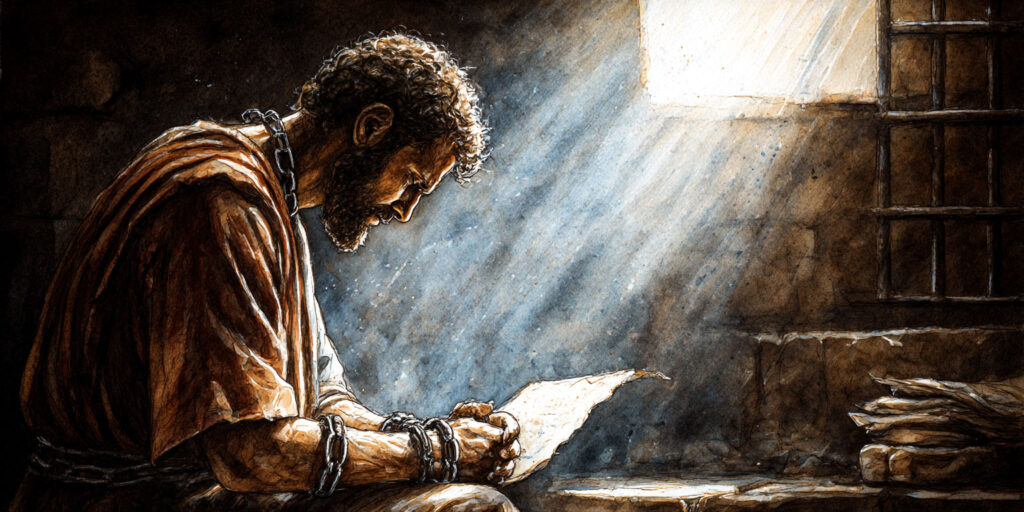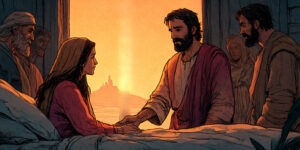
Peace
The gospel claims something bold: God offers real peace. Peace with Him, peace inside yourself, and peace with other people. But that peace isn’t automatic…

Are they servants of Christ? I am a better one—I am talking like a madman—with far greater labors, far more imprisonments, with countless beatings, and often near death. Five times I received at the hands of the Jews the forty lashes less one. Three times I was beaten with rods. Once I was stoned. Three times I was shipwrecked; a night and a day I was adrift at sea; on frequent journeys, in danger from rivers, danger from robbers, danger from my own people, danger from Gentiles, danger in the city, danger in the wilderness, danger at sea, danger from false brothers; in toil and hardship, through many a sleepless night, in hunger and thirst, often without food, in cold and exposure. And, apart from other things, there is the daily pressure on me of my anxiety for all the churches. Who is weak, and I am not weak? Who is made to fall, and I am not indignant?
If I must boast, I will boast of the things that show my weakness.II Corinthians 11:23-30
In a world where comfort is often confused with blessing, reading Paul’s words in 2 Corinthians 11:23–30 is like stepping into a different reality—a reality where faith comes at a cost. For many of us, especially those serving in peaceful, modern contexts, Paul’s testimony is almost embarrassing. It’s a reminder of how easy we’ve had it, and how much weight true devotion can carry.
Paul’s list of hardships—beatings, imprisonments, shipwrecks, hunger, exposure, and more—wasn’t a badge of honor in the traditional sense. In fact, he wrote, almost mockingly, that it was foolish to speak this way. But he knew that if people were judging his legitimacy by worldly credentials, then his suffering would more than qualify him as a true servant of Christ.
Today, when someone hears you’re a missionary, there’s often an instinctive respect—until you say you serve in a place like Rome. Rome doesn’t scream suffering. It doesn’t conjure images of hardship for Jesus. But that contrast only heightens the discomfort when we read Paul’s words. While we might worry about slow Wi-Fi or a late bus, Paul was being hunted, hated, and eventually executed—because of his love for Christ.
It’s a question that stings: why would a good God allow His people to suffer?
The answer is both personal and communal. Internally, persecution forces us to confront the depth of our faith. Is it real? Is it strong enough to stand when things aren’t easy? Is it worth dying for? These aren’t questions that get asked often in comfort-driven Christianity—but they’re essential to spiritual maturity.
Externally, suffering is also a witness. Paul’s journey from persecutor to persecuted is proof. The man who once watched Stephen die became the man who would endure beatings, imprisonment, and death for the same message he tried to silence. That transformation speaks louder than comfort ever could.
Persecution isn’t just personal. It’s cultural. As one writer said, it’s “the clash of two irreconcilable value systems.” Christianity will always rub against the grain of a broken world. When faith is lived authentically, it won’t blend in. That’s why Jesus said persecution is inevitable for those who live godly lives.
Historically, persecution has shaped the Church. After the Great Fire of Rome in AD 64, Christians became scapegoats. Misunderstood, mistrusted, and maligned, they were accused of cannibalism (because of communion), incest (because they called each other “brother” and “sister”), and atheism (because they didn’t worship Roman gods). Nero needed someone to blame, and Christians paid the price.
The consequences were brutal. For the next ten Caesars, being a Christian meant risking your life. And yet, the Church grew.
So what does this mean for us? Maybe we haven’t faced physical persecution. But have we lived our faith loudly enough to face resistance at all?
James tells us to “consider it pure joy” when we face trials. Why? Because hardship shapes us. It strengthens us. It matures us. Paul echoes this in Romans 5: “Suffering produces endurance, endurance produces character, and character produces hope.”
Persecution, in whatever form it comes, is part of the Christian life. It’s not a sign of failure—it’s evidence that we’re doing something right.
In a culture that prizes ease, don’t let your faith get too comfortable. The Church doesn’t grow stronger when it blends in. It grows when it stands out. When it’s willing to pay the price. When it finds joy even in suffering.
Like the athletes who endure pain and training to achieve greatness, Christians are called to a different kind of discipline. Not for fame or money, but for the Kingdom of God.
The next time the wind is in your face and not at your back, don’t panic. Learn to tack—set your spiritual sails wisely and keep moving forward. God never promised an easy road, but He did promise His presence on the journey.

The gospel claims something bold: God offers real peace. Peace with Him, peace inside yourself, and peace with other people. But that peace isn’t automatic…

Advent starts by asking us to slow down and look past the distractions. Every culture wraps Christmas in its own extras—traditions, shopping, decorations, sentimental ideas.

After Paul left Galatia, other teachers came. They questioned Paul’s authority and offered the Galatians a far more “comfortable” message…

Jesus leaves the synagogue in Capernaum and steps into a home. Simon Peter’s mother-in-law lies with a high fever.

Paul writes to a church he has never visited, yet he sounds like a pastor who knows them well: he encourages, challenges, and points every road back to Christ…